Breadcrumb
- Home
- Research and Creative Work
- Journal of Communication Inquiry
- State of Critical and Cultural Media Studies Symposium
State of Critical and Cultural Media Studies Symposium
Journal of Communication Inquiry 2025 Symposium
We invite experts in the field of critical and cultural media studies to discuss how and if the political economic, Birmingham, and other media studies traditions can help us understand the current sociopolitical environment, and opportunities for creating and valuing new knowledge in a globalized world.
Date: Monday, April 7, 3-6 p.m. (central time USA)
Conference Mode: Zoom Webinar
Register here
Schedule
Opening Remarks: 3-3:10 p.m.
Melissa Tully, David Dowling, and Munachim Amah
Keynote: 3:10-3:30 p.m.
Speaker: Josh Shepperd
Moderator: Munachim Amah
The Temporal Differences in Activist Strategy between Birmingham and Political Economic Approaches to Critical Media Studies
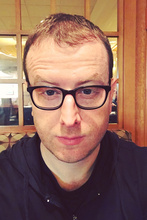
Josh Shepperd is Associate Professor of Media Studies at the University of Colorado Boulder. He is author of Shadow of the New Deal: The Victory of Public Broadcasting (University of Illinois Press), which received the 2024 BEA Book Award and placed as a runner-up or finalist for four other book awards. He is co-writing the official History of Public Broadcasting for the Corporation for Public Broadcasting (CPB) and Current, and is the founding Associate Editor of Resonance: The Journal of Sound and Culture (University of California Press). Since 2017 Josh has served as the sound research fellow of the Library of Congress National Recording Preservation Board, where he directs the Radio Preservation Task Force and Sound Submissions Project.
Panel 1: 3:30-4:40 p.m
Speakers: Meenakshi Gigi Durham, Terry Flew, Isabel Molina-Guzmán
Moderator: Munachim Amah
In communion with the critical/cultural tradition?
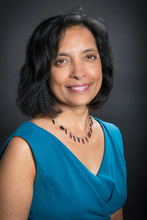
Meenakshi Gigi Durham is Professor and CLAS Collegiate Scholar in the University of Iowa’s School of Journalism and Mass Communication. She earned her Ph.D. from the University of Florida. Her research addresses gender and sexuality in the media, using an intersectional feminist approach to analyze embodiment, identities, and youth cultures. Her articles have appeared in leading communication journals, and she serves on many editorial boards. Her books include MeToo: The Impact of Rape Culture in the Media (2021), Technosex (2016), The Lolita Effect (2008), and Media and Cultural Studies: KeyWorks (2012). Among her numerous honors are the Teresa Award from ICA’s Feminist Scholarship Division, the University of Iowa’s May Brodbeck Award Distinguished Achievement Award for Faculty, and the President and Provost Teaching Excellence Award. She has also held a number of administrative positions. She currently serves as faculty ombudsperson in the Office of the President.

Terry Flew is Professor of Digital Communication and Culture, Australian Research Council (ARC) Laureate Fellow, and Co-Director of the Centre for AI, Trust and Governance at the University of Sydney. His books include The Creative Industries, Culture and Policy (SAGE, 2012), Global Creative Industries (Polity, 2013), Media Economics (Palgrave, 2015), Understanding Global Media (Palgrave, 2018), Regulating Platforms (Polity, 2021), and Digital Platform Regulation: Global Perspectives on Internet Governance (Springer, 2022). He was President of the International Communications Association (ICA) from 2019 to 2020, and is an ICA Fellow, elected in 2019. He is a Fellow of the Australian Academy of the Humanities (FAHA). In 2011-12 he chaired a review of the Australian media classification system for the Australian Law Reform Commission. His Australian Research Council Laureate Fellowship is a five-year study (2024-2028) of Mediated Trust: Ideas, Interests, Institutions, Futures.
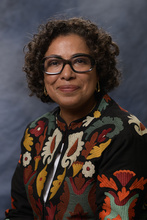
Isabel Molina-Guzmán Ph.D., is Professor of Communication and Latina/Latino Studies and a faculty affiliate of the Institute of Communication Research, Gender & Women’s Studies and Latin American & Caribbean Studies at the University of Illinois Urbana Champaign. She is a scholar in the fields of communication, media studies, and critical studies, with a specific focus on the intersection of race, ethnicity, gender, and media representation. Her research explores the complexities of identity, representation, and power structures in media and communication. She has published two books, one edited collection, and articles in leading journals and edited collections. Dr. Molina Guzmán’s research emphasizes the need for critical media literacy, examining the ways in which media portrayals both reflect and reinforce societal inequalities, and the role of media in shaping cultural narratives, particularly with regard to how Latina/o/e communities are represented, both historically and in contemporary contexts.
Panel 2: 4:45-5:55 p.m.
Speakers: Paula Chakravartty, Mohan Dutta, Silvio Waisbord
Moderator: Javie Ssozi
What is next for de-westernizing communication and media studies?
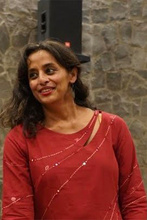
Paula Chakravartty is James Weldon Johnson Associate Professor of Media Studies at NYU. She has published widely in leading journals and is author and editor of Race, Empire and the Crisis of the Subprime, Media Policy and Globalization, and Global Communications: Towards a Transcultural Political Economy. Her current projects include a monograph titled Media as Economic Violence, and a co-written book, Media, Race, and Infrastructures of Empire. Chakravartty currently serves as the Editor of the ICA journal, Communication, Culture and Critique, is the Co-director of the Critical Racial Anti-Colonial Study Co-Lab at NYU, is the Vice President of NYU’s chapter of the AAUP, and serves on the coordinating committee of the National Campus Sanctuary Network.
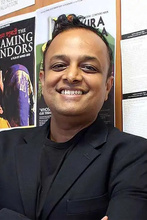
Mohan J Dutta is Dean's Chair Professor of Communication in the School of Humanities Media and Creative Communication, University of New Zealand. He is the Director of the Center for Culture-Centered Approach to Research and Evaluation (CARE), developing culturally-centered, community-led social change interventions. Through his public scholarship, performances, and research, he examines the role of advocacy and activism in challenging marginalizing structures, strategies for building grassroots radical democracies, communicative practices for co-creating voice infrastructures for deliberation and participation in struggles for justice, and the ways in which decolonizing registers for organizing disrupt and dismantle settler colonial, imperial, and racial capitalist structures.
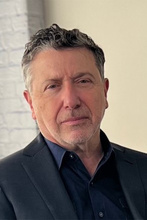
Silvio Waisbord is Professor at the School of Media and Public Affairs at George Washington University. He is President and Fellow of the International Communication Association. He is Editor of the International Journal of Communication. He is the author and editor of twenty books, as well as articles on journalism and politics, communication studies, media policy, and communication for social change. His most recent books are the forthcoming Introduction to Journalism (Polity) and (co-edited with TJ Billard) Public Scholarship in Communication Studies (U of Illinois Press, 2024). He served as Director of the School of Media and Public Affairs at George Washington University (2020-2023). Also, he is the former Editor-in-Chief of the Journal of Communication and the International Journal of Press/Politics. Waisbord received a Licenciatura in Sociology from the Universidad de Buenos Aires and a Ph.D. in Sociology from the University of California, San Diego.
Closing Remarks: 5:55-6:00 p.m.
David Dowling and Munachim Amah
About the Journal of Communication Inquiry
The Journal of Communication Inquiry was founded in the School of Journalism and Mass Communication in 1974 by graduate students and remains one of the only scholarly journals edited by graduate students. Graduate students elect the advisory board, and the managing and reviews editor are selected from SJMC graduate students. JCI was one of the first journals in the United States to publish work in media and cultural studies. Many luminaries in the field have published in the journal, including Stuart Hall, Angela McRobbie, Lawrence Grossberg, Ien Ang, Dick Hebdige, Janice Radway, and Edward Said. It continues to be a major outlet for media and cultural studies scholarship.